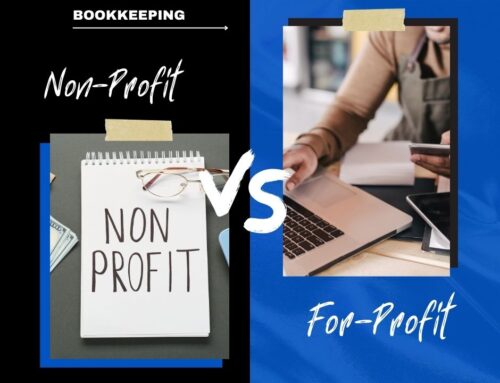No matter how small your business, bookkeeping remains vital to track expenses, monitor cash flow, keep employees honest and prepare for tax season. Keeping accurate records is key to your small business’s success, but many business owners find the entire process tedious. Plus, if you just recently opened your small business, you’re likely more concerned with building a solid customer base than with your financial accounts. However, cutting time spent on essential accounting tasks can lead to small mistakes and financial mismanagement that cause worse headaches down the road. Avoid common bookkeeping mistakes many small businesses make with these tips.
Not Tracking All Expenses
Small business owners often fail to consistently track all expenses, especially those involving a small amount of money. But even small purchases, such as office supplies and other expenses, can add up. To track reimbursable expenses, always keep your sales receipts. Such receipts are essential to place items in the correct expense category and prove expenses if your small business is audited. As your small business grows, record all receipts at least weekly — daily if you get a lot of them. Choose a core accounting software system like QuickBooks to automate expense tracking. Professional accounting software scales with your business to meet all your future record-keeping needs.
Not Keeping Personal and Business Funds Separate
It’s crucial to keep personal and business expenditures separate, which requires separate bank accounts so personal expenses aren’t inadvertently combined with business expenses. Mixing personal and business funds can easily lead to cash flow issues and auditing complications. This accounting best practice also helps you avoid simple errors that are often difficult to find. Commingling income doesn’t include just the business owner’s income but also all employees’ income. Don’t allow employees to pay for business expenses with their personal credit cards or their personal items on a business account. It’s a common error many small business owners make that causes more than a few problems.
Not Regularly Reconciling Bank Statements
Catching errors quickly requires you to stay on top of your bank statements. Set aside time each day to review your banking transactions and promptly reconcile your bank statement when it arrives. Reconciling your bank records involves comparing what’s in the account to what you’ve recorded in your accounting books. If these amounts don’t match, you must find any missing or duplicated transactions and look that there’s no sign of fraud. If you find an error, investigate immediately to get it resolved and your financial records back in check. Reconciliation is usually straightforward if your records are accurate and up to date. But it gets complicated when you don’t have time to regularly tackle record-keeping tasks, which is why hiring an experienced bookkeeper is often highly recommended.
Many Small Business Owners Don’t Monitor Financial Statements
Besides banking statements, a small business owner should also monitor several other financial statements on a monthly basis to regularly evaluate the business’s financial health and overall profitability. Check accounts payable to see if you have any outstanding debts and accounts receivable to ensure all money due your company has been paid for the month. Key financial documents to evaluate each month include the cash flow statements, balance sheet and income statement.
Failing to Collect or Deduct Sales Tax
Neglecting sales tax collection can lead to serious legal trouble. Unless your company is a nonprofit business, you must collect sales tax on most goods sold. Reporting sales tax can become complex for many small business owners. The most common mistake is failing to deduct sales taxes from total sales, leading to a larger amount due than necessary at tax time. If you complete a lot of online transactions, state and federal tax laws make sales tax collection even more complicated. If you’re not up on the latest tax rules, seriously consider hiring a professional accountant to ensure your business remains in compliance and avoids extensive tax liabilities at the end of the year.
Not Establishing Internal Controls to Prevent Fraud
Most small businesses set up petty cash funds for small purchases and generally trust their employees not to take advantage by borrowing these funds for personal expenses. All financial transactions, including those completed using your petty cash fund, should be for business purposes only. This falls under the same rule as keeping business and personal funds separate. Establish internal controls by allowing a limited number of employees access to petty cash or dedicating a single overseer of the funds. Putting one person in charge limits the potential for abuse and theft and ensures accountability. Make their job easy by establishing clear policies on managing petty cash and approving purchases.
Not Backing Up Financial Records
It’s unfortunate but true that computers crash, and when they do, your business could lose vital data. If you’ve failed to back up your financial records, it could be extremely difficult, if not impossible, to recreate your entire accounting books from scratch, even for an experienced bookkeeper. While having a fully paperless office is convenient, it poses a significant liability if you experience technical glitches. You should back up your records either to a flash drive or in the cloud to cover on-site equipment issues. It’s also generally still advisable to print hard copies of your spreadsheets daily and keep them for seven years. As a backup to your electronic backup, a well-organized system of paper backups covers your bases, and you’ve only lost money on a few reams of printer paper instead of hours of potentially costly bookkeeping services.
Failing to Partner With a Professional Bookkeeper
One of the biggest bookkeeping mistakes small business owners make is not hiring an experienced bookkeeper to handle all the time-consuming tasks that keep their business finances on track. Many business owners feel they can’t afford one, but you often save money in the long run with a professional bookkeeper who can set up your business record books for success. Partnering with Navitance to establish accounting best practices for your company and help you overcome your bookkeeping challenges takes the stress of making bookkeeping mistakes off you. We have decades of experience and provide comprehensive outsourced bookkeeping services for businesses of all sizes. You can relax knowing our finance professionals prioritize accuracy in all your financial record-keeping. Contact us at 978-809-3282 to learn more about our bookkeeping and financial services or request a consultation.





